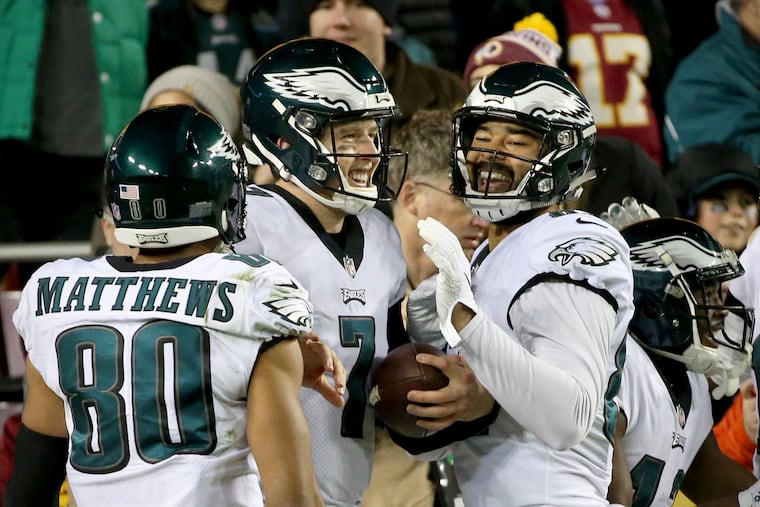Richard Rodgers returns again as Eagles’ third tight end; team names 4 protected practice squad players
For the third year in a row, Rodgers will try to provide depth at tight end. That plan didn't work well in 2018 or 2019.

Richard Rodgers, signed Tuesday to take the Eagles' 53rd roster spot for this week’s season opener at Washington, could be headed for trivia-question fame.
When Rodgers signed a one-year contract here in 2018 as a Green Bay free agent, he projected as a solid backup to Zach Ertz and then-rookie Dallas Goedert, with a defined role, but a preseason knee injury caused him to miss most of that season. In 2019, he signed a two-year deal; it was a preseason ankle injury that caused Rodgers to be released with an injury settlement. Then the Eagles brought him back, on Dec. 24.
This offseason, Rodgers signed with Washington, this week’s opponent, but he didn’t make it through last weekend’s roster cuts. Now he’s back again, for his third Eagles season, theoretically, but he has one career Eagles catch, for 7 yards. Rodgers, 28, has played in eight Eagles games over the last two seasons, after playing in 63 of a possible 64 for the Packers from 2014 through 2017.
Rodgers is here largely because the Eagles decided to risk waiving undrafted rookie Noah Togiai after an excellent training camp, as they juggled the roster last weekend. The Colts grabbed Togiai.
The 53rd spot seemed likely to go to free-agent offensive tackle Cordy Glenn, until Jason Peters agreed Monday to move back to left tackle from right guard. The Eagles still might sign Glenn; they could be waiting until after the first game, since as a vested veteran, Glenn would get his salary for the year guaranteed if he signed this week.
The Eagles also announced the four protected spots on their practice squad this week go to defensive end Joe Ostman, wide receiver Deontay Burnett, offensive lineman Sua Opeta and corner Trevor Williams. This year, because of the pandemic, practice squads are expanded to 16 players, with four spots each week that a team can protect, meaning another team can’t sign those players to its roster.